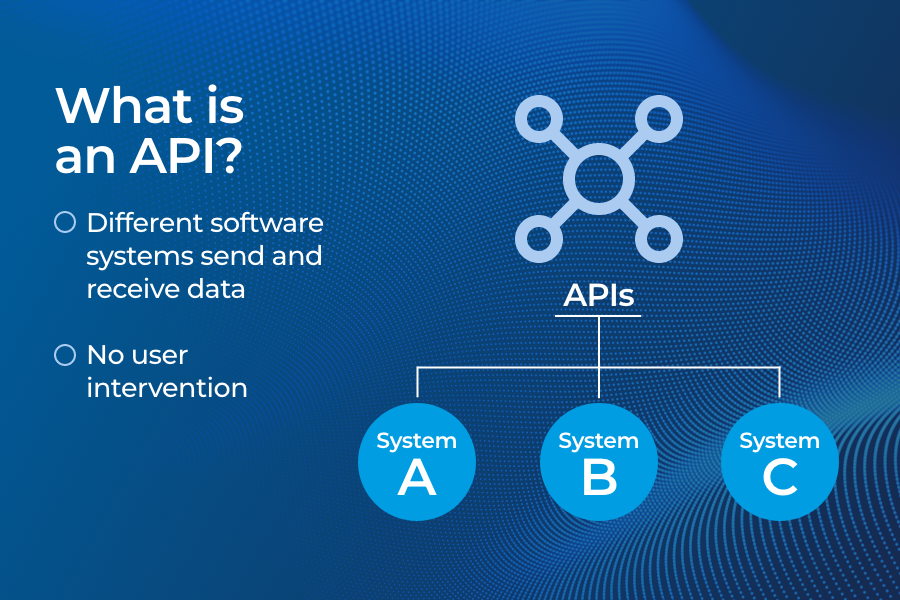Automating old processes and linking systems cuts complexity and speeds up workflows. When data flows freely, teams can focus less on busywork and more on smart choices that push business ahead.
Energy Transfer’s Senior Manager, Intrastate Application Development, Deborah Lynch and Deanna Hert, Director of Scheduling/Commercial Optimization, and Lindsey Saunders, Product Manager for NA Midstream & Measurement at Quorum Software unpack how APIs are replacing cumbersome spreadsheet uploads with automated nomination workflows. Take a look at the video below for the full story.
Understanding APIs and the Nomination API for My Quorum Pipeline
Application Programming Interfaces (APIs) are interfaces that allow different software systems to send and receive data based on sets of specifications. They enable different systems to work together seamlessly without user intervention.

The Nomination API for My Quorum Pipeline was created to submit nominations from a third-party gas marketing system and is not source specific. It utilizes the existing nomination validation engine within My Quorum Pipeline and complements the current import/export spreadsheet processes instead of replacing them. There is potential to expand this API further to send nomination data from My Quorum to other systems.
Challenges with Legacy Systems and API Implementation
Energy Transfer’s existing nomination process required transforming data from trading systems into Excel spreadsheets—a slow and occasionally inefficient method that sometimes took up to 90 minutes, especially during server maintenance. As the company grew to manage ten pipelines, manual entry and EDI processes became inefficient and difficult to scale.
The traditional nomination upload system struggled with large volumes, as spreadsheets reached up to 2,800 rows, which significantly slowed processing. Quorum’s nomination API represented their first major integration effort with a third-party system. The API employs a middle-tier translation layer to break down large files by pipeline and volume area, improving volume management and error handling, which reduced upload times from up to 90 minutes to about 12 minutes. This API leverages existing validation engines and works alongside current methods.
Error Handling, Validation, and Operational Improvements
Batch failures caused by single invalid records previously disrupted entire uploads. To prevent this, Energy Transfer segmented uploads and implemented pre-validation in their trading systems to catch errors before submission. Invalid records are flagged and held back with guidance for correction, while valid records proceed automatically. Backend systems automatically identify and resubmit the valid portions, minimizing manual intervention.
The API maintains standard nomination logic for consistent processing. Operational visibility was highlighted as critical to avoid manual troubleshooting and late-night fixes. There are calls for improved batch queuing and clearer failure diagnostics to increase reliability.
Future Directions and Expanded API Use Cases
Energy Transfer currently uses custom APIs to synchronize business agreements, meter points, contracts, and volume data between Quorum and their trading system, preventing discrepancies and ensuring data integrity. Both Energy Transfer and Quorum see opportunities to expand API capabilities to include inbound and outbound confirmations, scheduled quantities, and journal entries, which are currently managed via flat files.
A valuable future integration involves SCADA systems to provide real-time accumulation data, essential for accurate ratcheted CAS allocations, especially after operational disruptions like compressor outages. Integration with FLOWCAL ensures meter data is mapped and allocated accurately during nightly processes.
Improving user experience by streamlining access across multiple platforms, reducing required logins, and enhancing upstream system integrations—particularly with QPTM and TIPS—will foster a more cohesive and efficient operational environment.
Future APIs for My Quorum Pipeline
Together, Energy Transfer and Quorum are exploring additional API use cases like inbound and outbound confirmations, outbound scheduled quantity submissions, and outbound journal entries. These expansions will help accelerate performance by strengthening the digital core that powers seamless, efficient pipeline operations.
 Previous Page
Previous Page